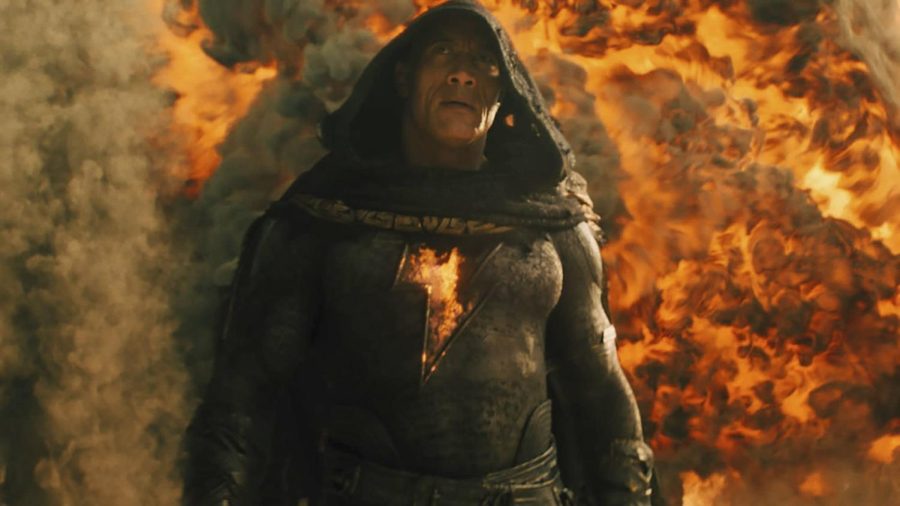**Warning: Wind River is extremely graphic in its sexual and violent content. Viewer discretion is advised.**
Wind River freezes the soul and dampens the palms. With its deliberate pacing and star-studded cast, this movie reaches and maintains emotional depth before escalating to shocking conflict. Jeremy Renner plays Cory Lambert, an expert tracker who discovers a young girl’s body on the Wind River Native American reservation in Wyoming. Jane Banner, played by Elizabeth Olson, is a rookie FBI agent who joins Lambert on a riveting, heartbreaking journey to uncover the truth. Lean in and bring a jacket for this movie – Wind River is an explosive proto-noir that poses chilling issues of grief, suffering, and abandonment.
In his directorial debut, Taylor Sheridan adds another stirring piece to his filmography with Wind River. As the screenwriter for 2015’s Sicario and 2016’s Hell Or High Water, Sheridan challenged noir and drama conventions by raising unanswered moral questions. Sicario uses the war on drugs as a means of examining the sacrifices we make in the fight against evil. Hell Or High Water probes issues of loyalty and self-preservation. Meanwhile, Wind River looks at such issues on a larger scale, as the Native Americans’ identity and way of life seem to crumble before our eyes.
After an opening flashback to the movie’s central death, we’re introduced to our protagonist, Cory Lambert, as he kills a wolf preying on a herd of sheep on the frozen Wyoming tundra. His stoic demeanor gives way to a full heart, struggling with grief and remorse. Renner’s performance in Wind River is the cornerstone of what makes this movie remarkable. He immerses us in the story by carrying an entire people’s sorrow on his shoulders. In one scene where he comes face to face with the murderer, the tension is inexorably stretched as Lambert demands the truth from the antagonist. As he hears the truth, Lambert’s intensity instantly gives way to utter grief. This change of emotion is so genuine and brief that the audience is immediately pulled out of their mounting anticipation, as justice seems imminent, and plummeted to the depths of heartbreak unaffected by reparation.
Olson is a dynamic foil to Renner’s lead, but she also flexes enough grit and depth to make her character engaging on her own. Banner is never the damsel in distress. Instead, she charges headlong into danger –weapon drawn and ready to take down anyone who threatens her or her quest for justice. Her training with handling murder investigations complements Lambert’s relationship with the Arapaho and keen tracking abilities. In terms of similarities, Lambert and Banner are both emotionally invested in the case. They are broken over learning the victim’s story piece by piece, and so are we.
Sheridan’s screenwriting experience is evident in Wind River. Its story is original in foregoing murder mystery convention, yet also responsible in not distracting from deeper questions. While the protagonist’s list of suspects in a murder mystery is integral in shaping the film’s structure, Wind River avoids this and benefits from it in numerous ways. First off, such a structure compromises the plot: our heroes will bounce from one suspect to another for an hour or so, uncovering more about the suspect along the way, before finally capturing them towards the end of the film. This process of elimination causes us to gloss over much of the work’s second act – we know our heroes catch the bad guy at the very end. Wind River instead trades deception for emotion, drawing us into the world of the Arapaho in the second act. We get an unflinching look into their pain and grief, both preceding the tragedy and resulting from it. Instead of misleading us with innocent suspects, Wind River uses its second act to reach emotional depths uncanny for its genre.At its core, Wind River is raw in both its emotion and its guts.
Perhaps the only flaw in Wind River’s logic pertains to the tracks in the snow left by the killer. Given the protagonist’s use of them, they are fundamental to the movie’s central conflict. Twice Lambert mentions the snowfall threatening to cover them, yet this tension between a fresh trail and a cold one is never developed. Rather, it is referenced to for the sake of realism before our heroes prevail over what could be a devastating occurrence.
Categorizing Wind River as a pure murder mystery discredits far deeper elements at work. On the other hand, calling it a tragic cultural biopic neglects the central conflict (and its resolution), which make the film’s emotional weight bearable and gives it meaning. Truly, Wind River is a film that uses a riveting crime narrative to explore the deeper heartache and struggles of the subjugated Native American culture.
Overall, Wind River is fearless in addressing Native Americans’ current welfare. Sheridan argues that they are forgotten and relegated. Their culture and way of life are scorned by a country that does not understand or love them. These themes reverberate on a character-level too, as what starts as a father/son weekend trip soon examines cultural neglect and tragedy. Renner’s character offers a compelling response to this neglect, as his love for the Arapaho drives him to both act in the face of the murder as well as grieve the loss of a girl and her people. Lambert’s vigilance, determination, and heartbreak resonated so deeply with me that it’s challenged me on the compassion and depth with which I love and respect those around me. Wind River is as deep as it is exciting, fusing thought-provoking substance with engaging spectacle. For that reason, I give Wind River an 8/10.

















